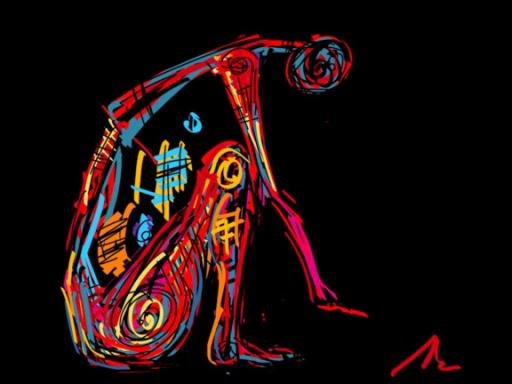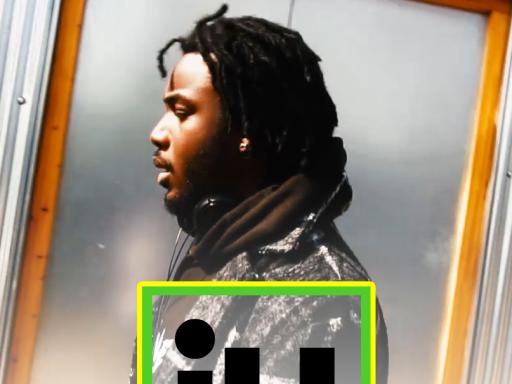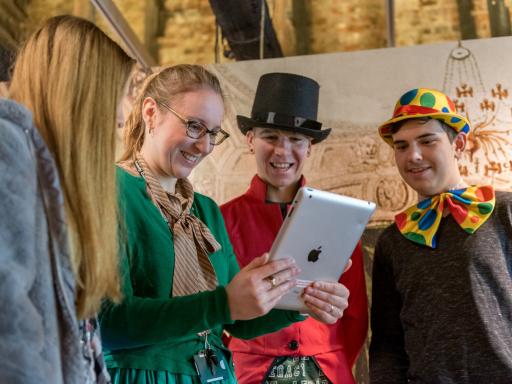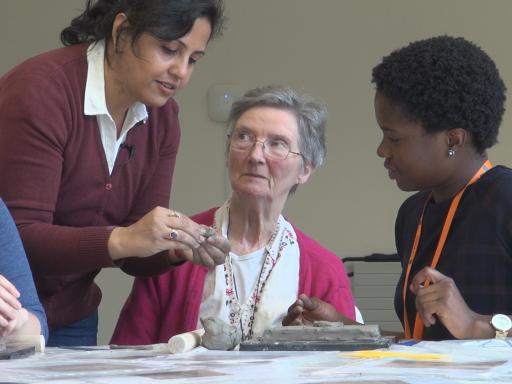This is a developing resource exploring where and how digital meets culture, health and wellbeing.
What do we mean by 'digital'?
Digital encompasses a vast range of technologies, applications and platforms employed for varying functions and purposes; from the use of apps to support day-to-day operations to enhancing the healing environment, or the virtual transportation of people to another time and place. Digital literacy and maturity varies across different segments of culture, health and wellbeing thanks to varying levels of investment, knowledge and workforce capacity.
The relationship between humanity and technology has always been an area of curiosity and concern for artists, scientists and researchers. With the rapid upsurge in technological advancements and the hyper-presence of digital in our lives, it's a muse for content such as The Barbican's Life Rewired Series, and influences the ways we consider interacting with our audiences and each other.
There are exciting opportunities to increase access, develop new audiences and evoke empathy through digital devices, experiences and strategies. Combined with the sector's innate creativity and imagination, there is potential for new systems and vehicles for amplfying social impact and change, whilst (perhaps) reducing our environmental footprint.
However, there is still fear and anxiety around the implementation and impact of digital in both organisations and audiences, on both operational and ethical grounds. One recurring theme is the rapid development of AI technologies and automation: how will this impact on work, and subsequently the long-term health of individuals and communities? The lack of diversity within the workforce developing technologies - particularly AI - and the bias that might result from this, is another.
This resource aims to provide resources, thought-pieces, positive practice and starting points for individuals and organisations who are grappling with strategic, artistic and ethical questions about the place and role of digital in their work.
This page is intended to be an interactive document that changes over time and with your input. Please do contact us with any interesting articles, projects or developments.
Technology and Human Proximity: A guest blog by Invisible Flock
We asked the award-winning interactive arts studio Invisible Flock, who operate at the intersection of art and technology, to share insights into their practice and why digital/ why technology?
Policy, Strategy and Thought Leadership
The DCMS Culture is Digital initiative and report is at the forefront of digital strategy and development within the cultural sector in the UK. Rt Hon. Matt Hancock writes in the introduction to the Culture is Digital report, 2018,
“ This Digital Culture Report focuses on the use of digital technology to drive our cultural sector’s global status and the engagement, diversity and well-being of audiences.”
Building on commitments from the report, Arts Council England (ACE) and The National Lottery Heritage Fund (NLHF) are working with partners, including The Space, Culture 24 and The Audience Agency, to develop a Digital Code of Practice and Digital Maturity Index. ACE say that this will enable the sector to grow its digital capability, knowledge and ethical practice.
The Code and Index are set to be published late 2019 alongside the results of the ACE and Nesta's Digital Culture Survey, looking at the sector's position on digital practice.
Find out more about the Digital Rights Code from CEO/Creative Director of The Space, Fiona Morris, in Democratising digital arts for everyone.
Resources and Sector Support
Here are links to key organisations with a digital focus, providing resources, articles and training opportunities for the arts and cultural sector.
Increasing Access and Online Interventions
Transforming Realities: Art, Design and Augmented Reality in healthcare settings
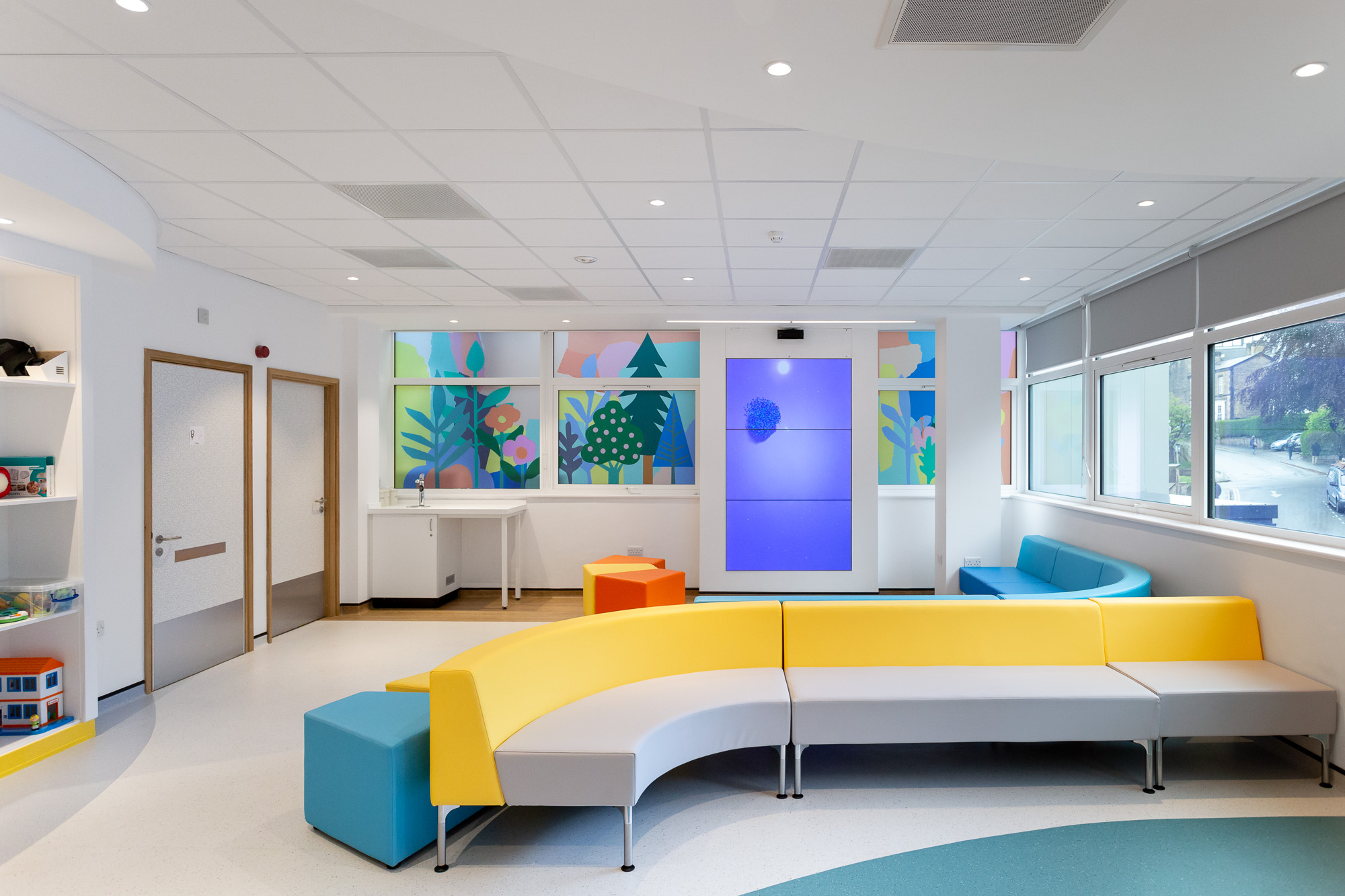
Artfelt and Megaverse collaborated on an innovative project which uses technology to distract young patients from pain, stress and anxiety whilst undergoing treatment at Sheffield Children’s Hospital. The Treatment Rooms in their recently opened wing have been transformed into interactive arctic and woodland worlds, using augmented reality and 3D sound, combined with visual wall graphics to create an immersive environment.
Stories, Advocacy and Voice
Digital is changing the way we tell, share and experience stories. It is also deconstructing and re-imagining the power, influence and positioning of the participant/audience in the story-making process. Here are a few examples of how digital technology is enabling organisations and individuals to raise their voices, create new narratives, break down traditional service/user dynamics, building new forms of interactions.
Evoking Empathy: VR and Gaming
Virtual Reality (VR) is often termed as "the empathy machine". Researchers, neuroscientists, artists and social activists are testing, exploring and excited about the role of virtual reality in deepening empathy between people and people and planet to create a safer, happier and more sustainable world.
A charity called Checkpoint, has been created by gamers and mental professionals for the gaming community. It provides resources for mental health, games specifically designed for wellbeing and works to promote safe gaming activity and online communities.
Below are a few articles exploring the potential of VR and gaming to immerse people in different worlds and human experiences to grow awareness, shift mindsets and change behaviours.
Funding
Digital approaches and development are key priorities for most of the sector's big funders; both within their own organisations and the work they are looking to fund.
The National Lottery Fund recently announced the first cohort of projects, sharing £3.4million of their Digital Fund, enabling charities to build digital infrastructure and capabilities in response to communities' needs. Read the full article here.
Tom Steinberg, Digital Lead at The National Lottery Heritage Fund (NLHF), marks a year on from the publication of the Culture is Digital Report with a blog, How we are planning to boost the heritage sector's digital potential . This documents NLHF's progress so far, sharing how they are "taking a journey to digital confidence" with and alongside the heritage sector.
This shared digital agenda has also instigated partnership funding programmes, bringing together large funding bodies and tech experts to bring about more innovation and social impact, such as CreativeXR (Arts Council, Digital Catapult and Innovate UK) and the Tech for Good Fund (Paul Hamlyn Foundation and Comic Relief).
Moira Sinclair, Chief Executive of Paul Hamlyn Foundation commented:
“The latest round of grants continues to demonstrate the power of tech to find new ways to address disadvantage. We look forward to seeing how these ideas evolve with access to tailored tech support and valued partnerships backing people to pursue their vision for social change.”
Comic Relief’s CEO Liz Warner added: “We’re pleased to be supporting another Tech for Good cohort, responding to a diversity of social issues, and helping them put the needs of the people they serve at the heart of their digital development.”




